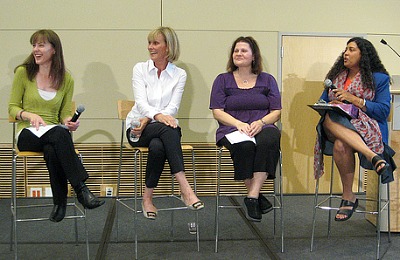
For Grace’s Women In Pain
Awareness and Education Project
Women In Pain Petition
To: The Medical Community of the World
From: Women In Pain
Stop the bias which prevents the ethical and equal treatment of women with chronic pain – now. Women have for years suffered from a destructive bias and prejudice by the medical establishment when it comes to the assessment and treatment of their chronic pain.
All too often, their pain reports are discounted as “emotional,” psychogenic or “all in their head,” and therefore, not real. Women for their complaints of chronic pain are often prescribed sedatives to “calm their nerves” while their male counterparts are prescribed painkillers.
Multiple studies support the fact that while women are more likely to seek treatment for their chronic pain, they’re also more likely to be inadequately treated by healthcare providers. This is in large part due to the provider’s discount of a woman’s verbal pain report and the medical profession’s emphasis on objective pain contributors.
Typically, a woman expresses her pain experience in emotional terms, often describing how her chronic pain negatively impacts her family and social life. She may even cry which leads the healthcare provider, due to old cultural and social perceptions, to assess that the pain is psychologically-based. This is often the plight of women afflicted with chronic pain conditions such as fibromyalgia, Complex Regional Pain Syndrome, pelvic pain, TMJ, etc.
In the Fall of 2001, a groundbreaking report in the Journal of Law, Medicine and Ethics titled “The Girl Who Cried Pain: A Bias Against Women in the Treatment of Pain” perfectly substantiated this endemic shortfall of pain treatment for women. It concluded, among other things, that “women’s pain reports are taken less seriously than men’s, and women receive less aggressive treatment than men for their pain.” Furthermore, an article in the New York Times (6/23/02) written by Nancy Wartik cited this report and exposed this ongoing medical scandal. Numerous studies continue to support this problem.
I have been an unfortunate victim of medical gender bias. My story began more than three decades ago when I was a 21-year-old ballerina with a bright future. Then one day I suffered a minor ballet injury that quickly turned my storybook life into a living hell. For the first thirteen years of my illnesses (Complex Regional Pain Syndrome and fibromyalgia), my doctors, predominately male, told me my physical problems were “all in my head” while the disease progressed throughout my entire body, eventually leaving me bedridden and unable to speak with intractable pain.
Despite my multiple symptoms (burning, stabbing, spreading pain, limb contractures, muscle tremors, atrophy, skin discoloration, fatigue, etc.), my doctors dismissed my problems as psychological. I was told that I was suffering from stagefright, enjoying the benefits of secondary gain, or had “tendonitis from Mars.” One doctor told me I was contracting my right arm with my mind just the way one levitates oneself! My medical experience is an excellent example of what women afflicted with chronic pain are often subjected to in the male-dominated medical community.
This type of treatment smacks of gender discrimination and must stop now. Women should no longer accept or tolerate second-rate treatment and condescending mind-sets which put them at risk for life-long disability or worse. The emotional and psychological traumas these practices exact are immeasurable and ultimately destructive to the spirit and soul of the sufferer.
“First, do no harm” is an oath a doctor takes as a pledge to patient care; however, harm, more often than not, is the result when it comes to treatment for women with chronic pain.
I have taken the liberty of drawing up a Women In Pain Bill of Rights to articulate what I see as essential needs for a woman suffering from chronic pain and the expectations she should have for her health care provider. I encourage you to share it with others.
Thousands upon thousands of women suffer needlessly on a daily basis due to the old attitudes and gender bias which permeate the medical establishment. These practices must end now before more harm comes to those who need help most.
Please sign this petition to support the spotlighting of this crucial healthcare issue and forward it to as many people as you can. All signatures and comments will be presented to media sources and legislators to help give this issue the urgent attention it desperately needs.
Thank you for your time and much-needed signature of support,
Cynthia Toussaint
Founder & Spokesperson, For Grace
Author, Battle for Grace

